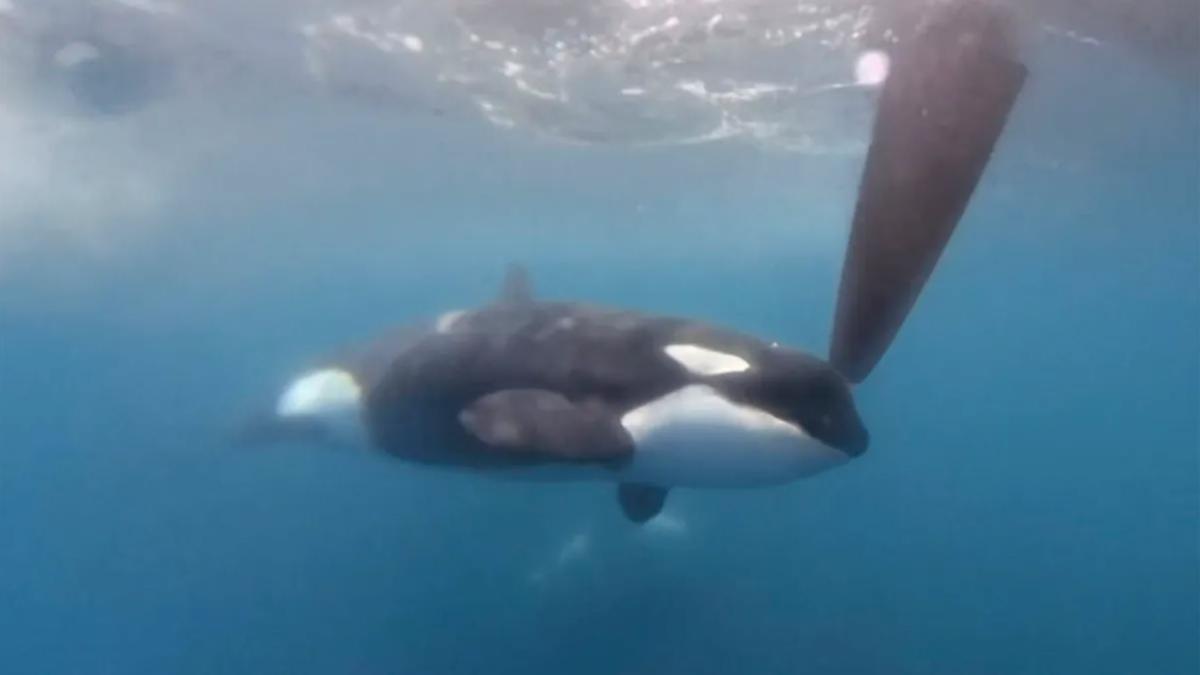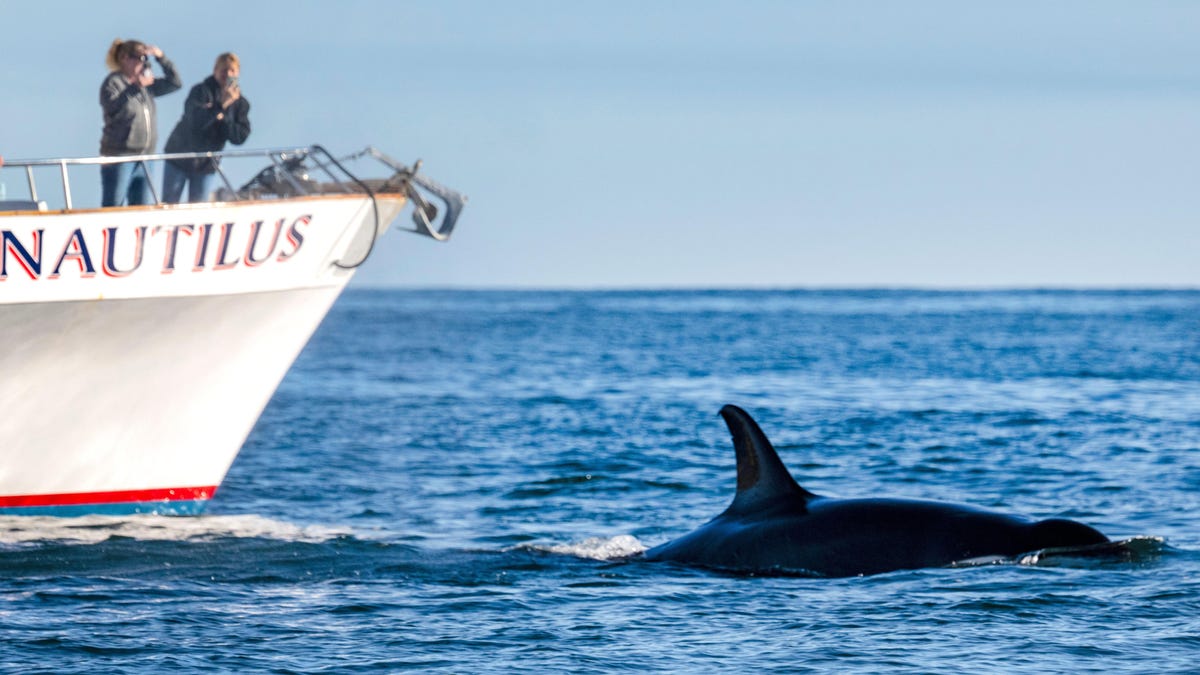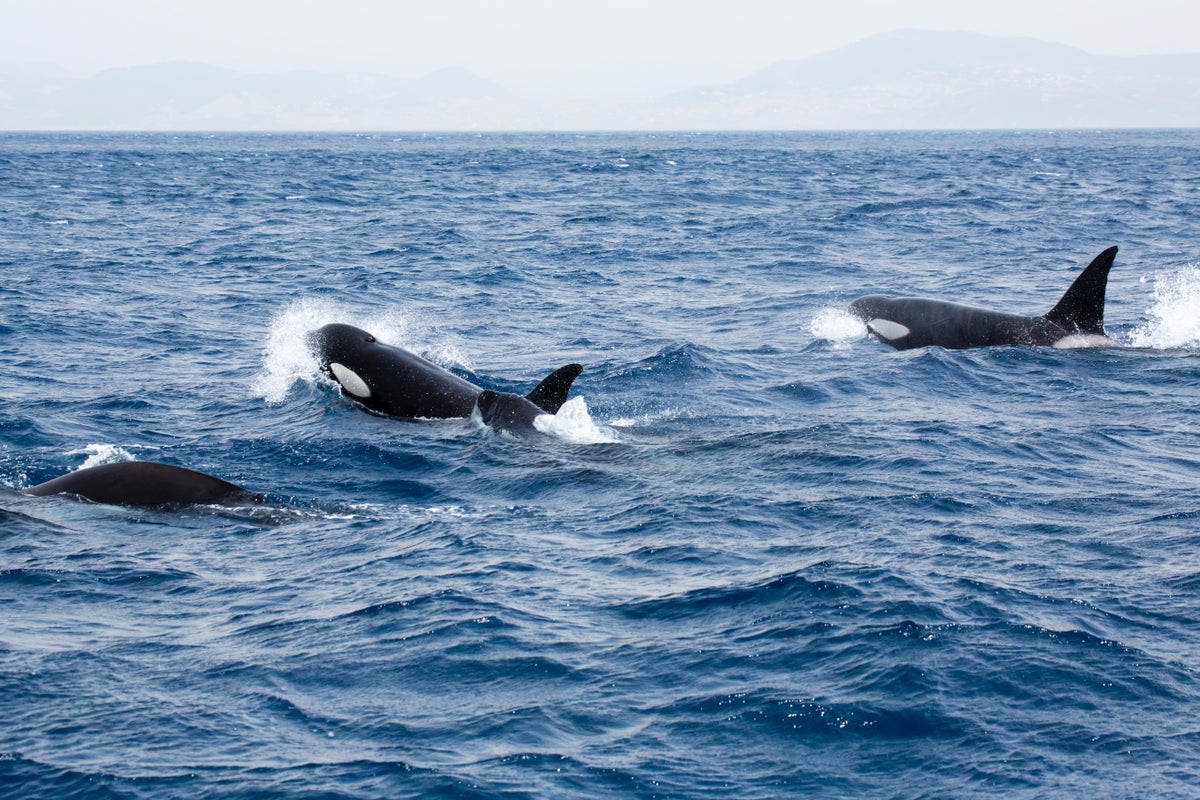The Alboran Cognac was carrying two people and encountered the orcas at 9am last Sunday morning.
Passengers reported sudden blows to the hull and rudder before the water began to seep into the ship and a tanker rescued the two people on board and transported them to Gibraltar.
Experts believe that the orcas involved in this attack are a sub-population of around 15 individuals, which has been given the name "Gladis".
This group of juvenile males has sunk several yachts in the Strait of Gibraltar over the last four years, but experts are a little perplexed as to why. Despite being peaceful animals, the Gladis group has been plaguing the small strip of water that separates Europe from Africa for years.
In March, the Cruising Association issued a precautionary warning about orca attacks on the Portuguese coast. There had been four incidents so far this year, with a peak expected between April and September.

According to Quartz, since May 2020, there have been around 700 interactions between orcas and ships in the Strait of Gibraltar region, a trend that continues to this day and still has no clear explanation.
Photographs from the Gladis group, dated 2020, revealed several wounds on the animals' bodies, possibly following previous confrontations with fishing boats.
In an interview with NPR last year, the director of the Orca Behavior Institute, Monika Wieland Shields, said that the motivation is unknown, but that it could be a defensive behavior based on previous traumas.

"It's possible that orcas have had negative experiences with a fishing boat, so they now see all large boats as a threat," he said.
"I think orcas are capable of feeling complex emotions, such as revenge. I don't think we can completely rule that out," he added.
Another plausible theory is that ramming boats is the latest craze for orcas, according to Renaud de Stephanis, president and coordinator of CIRCE Conservación Information and Research, a cetacean research group.
Also in an interview with NPE, Renaud de Stephanis said that "this is a game" for orcas and that when they "have their own adult life, it will probably stop". This is because, as they get older, they have to help the group hunt for food and have less time to play with the sailboats.
Other scientists believe that the boat attacks were initiated by a "traumatized" orca in a "critical moment of agony" - and that the behaviour is spreading among the population through "social learning".






